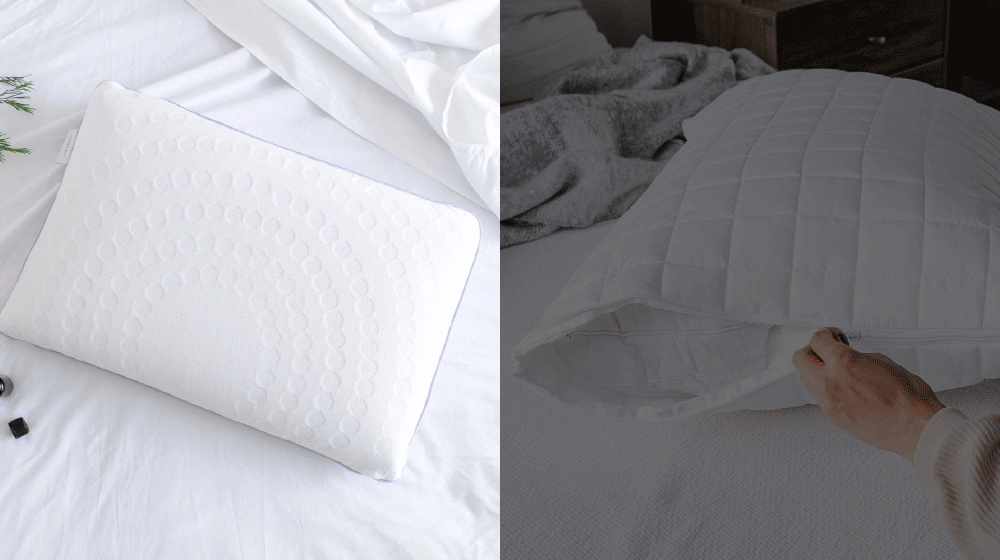Final taxes and shipping will be calculated at the checkout.
Sign in to see items you have added using another computer or deviceHow Often Should You Wash Your Bedding?

Did you know you spend about one-third of your life asleep? With so much time spent resting, clean bedding becomes essential—not just for comfort, but for your overall health and well-being.
Regularly washing your bedding helps reduce allergens and creates a fresh sleep environment that supports restful nights and energised mornings. A clean bed can even help prevent skin problems, helping you feel better both during sleep and throughout your day.
Not sure how frequently to wash your sheets, pillows, or duvet covers? Our experts at Linen Chest share practical advice to help you keep your bedding clean, comfortable, and inviting night after night.

Why Regular Bedding Washing Matters
Hygiene
Bedding naturally accumulates sweat, oils, dead skin cells, and dust mites over time. Regular washing removes these unwanted build-ups, keeping your bed fresh, clean, and comfortable for a better night’s rest.
Health benefits
Clean bedding significantly reduces the risk of allergies, skin irritation, and even respiratory issues. Regularly cleaned sheets, pillowcases, and duvet covers result in clearer skin and easier breathing throughout the night.
Better sleep quality
Clean, fresh-smelling bedding helps you unwind faster and sleep more comfortably. When your bedding is clean, your bedroom transforms into a calming retreat, which contributes to improved sleep quality and increased daily energy.

Recommended Bedding Washing Frequency
| Bedding Item | Washing Frequency |
|---|---|
| Sheets | Once a week More often if you sweat heavily or have allergies. |
| Pillowcases | Every 2–3 days Helps prevent acne and oil buildup. |
| Duvet Covers | Every 2 weeks Wash more frequently if not using a top sheet. |
| Mattress Protectors | Every 1–2 months Helps maintain mattress hygiene. |
| Pillows | Every 3–6 months Check care labels for specific instructions. |
| Blankets & Comforters | Every 2–3 months Wash more often if frequently used. |
How often should you wash your sheets?
Sheets collect dirt, sweat, and oils from our bodies. So, they are the most essential bedding items to wash frequently. To keep your bed hygienic and allergen-free, wash your sheets at least once a week. If you're prone to sweating, have allergies or asthma, or share your bed with pets, consider washing them even more often.
Tip: Simplify your routine by owning multiple sheet sets. Rotating your sheets weekly means you won't have to rush laundry on bed-changing days. It makes upkeep manageable and stress-free.
How often should you wash your pillows, pillowcases & pillow protectors?
Over time, pillows gather dirt, bacteria, and dust mites, potentially causing skin and hair issues. To maintain optimal hygiene, protect your pillows with washable pillow protectors and pillowcases. Wash pillows every 3–6 months to keep them fresh and supportive. Not sure if it's time to replace your pillow? Find out more in our guide: How Often Should You Replace Your Pillow?
How often should you change your pillowcases? Ideally, they should be refreshed every 2–3 days. Regular washing helps prevent buildup of oils and bacteria. This reduces the risk of acne and allergies.
Wash your pillow protectors monthly. These protective covers extend pillow life by keeping allergens and dirt at bay.
Check out our Pillow Guide for expert advice on finding and maintaining the perfect pillow.

How often to wash your duvet cover?
Your duvet cover, like your pillowcase, protects against dust, dirt, and oils. If you're using a top sheet, washing it every two weeks is ideal. Without a top sheet, aim for weekly washing.
If pets sleep with you, increase washing frequency to every 3–4 days to reduce pet hair and allergens.
We recommend always using a flat sheet beneath your duvet or comforter. This easy-to-wash layer simplifies laundry and helps keep bulky bedding cleaner longer.
How often to wash the mattress protector?
A mattress protector safeguards your mattress from stains, allergens, and dust mites. Since it's usually beneath your fitted sheet, washing every 1–2 months keeps your mattress protector fresh without excessive wear.
Tip: Pair mattress protector washing with your pillow protector routine to simplify your bedding care schedule.

Additional tips for keeping bedding fresh
- Use mild, fragrance-free detergent to prevent skin irritation.
- Wash bedding in hot water (if fabric permits) to eliminate bacteria and dust mites.
- Regularly air out blankets and comforters between washes.
- Invest in additional bedding sets to rotate easily and reduce wear.
- Always follow the manufacturer's washing instructions for best results.
Enjoy cleaner bedding, healthier sleep, and peace of mind knowing your sleep environment is always fresh and inviting.

